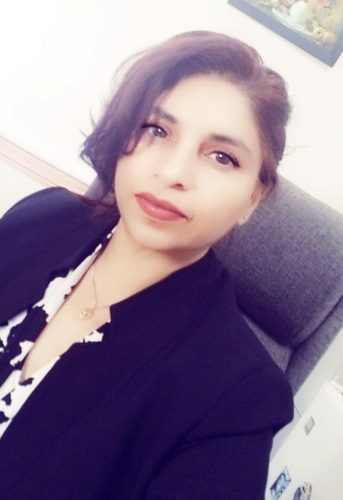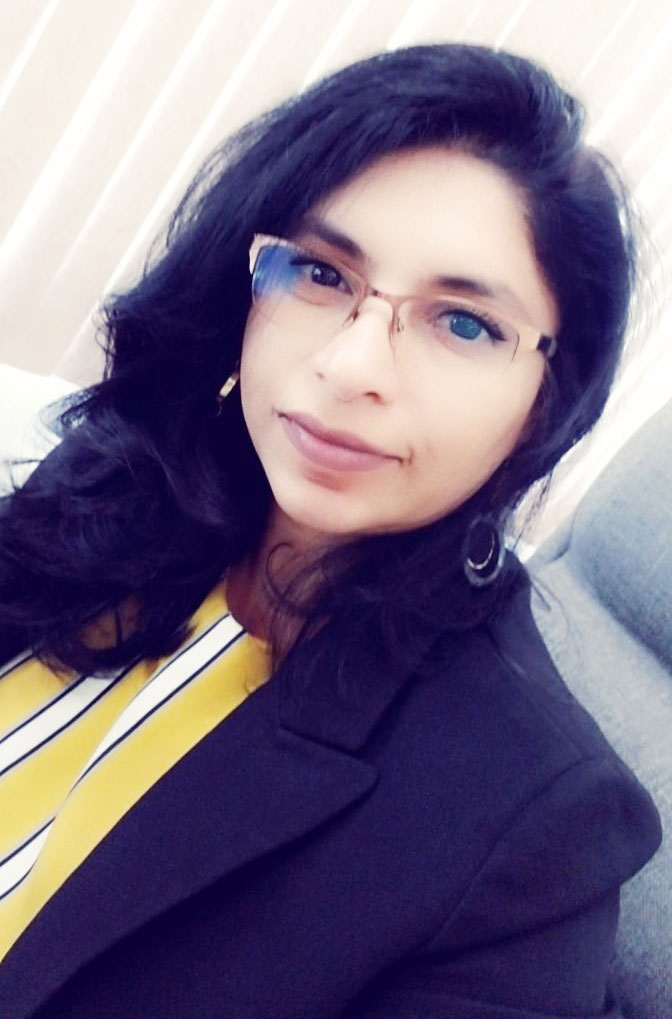Parents can do more to help their children if they are willing to look closely at their own lives, according to Yeaswantie Beekhoo PhD (Seema), a holistic psychologist, who is attached to the Childcare and Protection Agency.
Dr Beekhoo has been at the agency for the last four years and for her the motivation was that she wanted to get more involved with the public in her field, after her years of experience in the educational aspect. She lectured in psychology from the diploma to master’s level at the American University of Peace Studies for some ten years.
The first in-residence psychologist of the agency believes that its philosophy, mandate and objective are good for the country and she has since incorporated her style to make her functions impactful.
 “When I started to work with the public it was interesting. The public brings joy to my life. My field was more of books but when the public came in is like the books came alive… their behaviour has to do with pain so most times when they come in I don’t have a problem with them,” she said.
“When I started to work with the public it was interesting. The public brings joy to my life. My field was more of books but when the public came in is like the books came alive… their behaviour has to do with pain so most times when they come in I don’t have a problem with them,” she said.
Interestingly, Dr Beekhoo said there are times when she sees herself as a comedian as she wants to have clients smiling before they leave her office.
“What I do is, I work the pain and have them understand why what is happening to them is happening. When it has to do with the law, say we extract a child, I would explain that process to them and the reason why, that is my job,” she explained.
She sees both children and adults and being the only psychologist at the agency, case officers decide what cases go to her and it is done through a referral system.
“We have seen children coming from broken homes and sometimes that is all we see, they are coming from a broken home. But sometimes their parents also came from broken homes and that is what I would look at… I would question the parents…,” the psychologist said.
She explained that for the children to be helped, parents have to assist in this process as it is their behaviours in the home which affect the children and getting them to understand this will in turn assist children. Parents can see their qualities or faults by looking at their children, as the children mirror them. Even when they might not see themselves in some of their children’s behaviours, it is likely that it manifests differently in the child.
A different time
According to Dr Beekhoo parents need to understand that they live in a different time where children are exposed to the internet and they need to start educating their children before they Google the information.
“Educate them about sex before they go and Google sex… Everywhere has sex and a child is stimulated between age five to six and by age ten a child’s body is stimulated. Teach them what is going on with them, don’t let them go and explore it…,” she advised.
As a holistic psychologist, Dr Beekhoo said, her approach is grounded in psychosynthesis, which focuses on the relationship between mind, body and spirit in an attempt to understand and address the issues in one aspect of a person’s life and how it can lead to concerns in another area.
She said she works with the mind and gave the example of a mother not receiving love as a child and thus finding it difficult to love her children.
“People would say is not me have the problem is the child have the problem, but the child is feeding off of their emotions. Everything, how you behave, how you curse, how you handle people around you, the child is feeding off of it. When the child starts to behave that way we can see it. We can always see other people’s mistakes, but we can’t see our own…,” she posited.
Mothers’ emotions, Dr Beekhoo said, affects children more than fathers’ and she called for women to stop complaining to their sons and daughters about problems they might be facing.
“If you have a husband [who is] cheating or you… don’t go and complain to your child, to your 13-year-old daughter or 14-year-old son. Don’t go crying and say, ‘you see wah you daddy doing?’ and don’t try to kill yourself in front of them,” she said.
And if parents are aware that their children have problems, they should seek professional help instead of trying to counsel them as they would not be able to get through to them, she added. If your child stops socializing or no longer shows interest in things he/she liked those are signs of depression and should be addressed by parents.
While she sees cases that would cause many throw up their hands and become frustrated by the sheer level of depravity in our society, Dr Beekhoo said for her it is all life and she looks at it all as an opportunity for growth. If she can help one person then that person in turn can help another.
“I know that when people leave my office – they come in here sad and they leave happy – so of course I would say I did something… When they come in here, it is not about me it is about them. I don’t exist when I am working with people it is not about what I think or how I feel but how I can help this person understand their situation,” she stressed.
She opined that there is a need for more messages targeting men, warning them not to abuse young girls and women need to believe their children when they report abuse and not to try to fix the problem but to immediately seek professional help while ensuring that the perpetrator is brought to justice.
She is also of the view that more work needs to be done with the country’s women and men’s organisations need to work with the men and “tell the men stop troubling our young women.
“When big men interfere with young girls they destroy them mentally and these girls are the ones who make babies and if they continue like that we would have more disturbed women and more disturbed babies,” she warned during an interview with the Sunday Stabroek.
“It would be nice if the men’s organisations would start saying to men ‘do not trouble young women from birth to 20’ so when these girls mature to the rightful age we can get good babies.
“Men need to understand that their obsession with sex is their problem. They need to stop looking at porn. They need to get themselves checked out because sometimes sexually transmitted diseases can lead to these tendencies, causing a man to crave sex more and more… So if they see they like young girls [they should] go and see a psychologist because they need help,” she said.
Women, she said, need to believe their children when they report sexual abuse and not to choose the man over the child. Adults should also not keep questioning the children and having them repeat the abuse as they are not professionals.
“If the child was molested, take the child to a professional… The child would need intervention but not one with emotions. It is not an intervention [where the adult is saying] ‘wah daddy do to you tell aunty wah daddy do to you’… Intervention is personal, and it is where you get to re-programme the person’s mind…,” she cautioned.
Finding solutions
Saying that she is not attached to the job, Dr Beekhoo said she loves it and because of her passion, she always works on finding solutions. But she made it clear that while she can give guidelines she cannot change a person’s path and if she tries to take away the pain from someone who is not ready to let go she would be causing more harm.
And with the number of cases that reach the agency’s doorstep, the psychologist admitted that if she did not take care of herself, then she would become burdened and burnt out at the end of the day.
“My job is to help you to understand the pain, to work the pain, so that the pain can make you a better person…,” she noted adding that it is not about fixing people rather but helping them to
understand their emotions and deal with the stresses of life.
She works with the children at the homes that fall under the agency (except for the Sophia Care Centre) and she does group sessions as well as meet them one and one. The sessions are referred to as cognitive restructuring programmes which help them to identify their behaviour and bring about change.
At the agency, she sees children everyday once she is on duty, but the number varies depending on the time she spends with an individual case. Many times families are not interested in follow-ups and one of the challenges she faces, is clients being unwilling to reveal their family history which is vital to her helping them.
“If they don’t share accurate information with me then my findings could be wrong, so most of the times I would spend listening to them and I would ask about different behaviours to make the connection before I can come up with a report…,” she said.
In working with the children, the psychologist said, she makes it humorous because children learn when they are jolly and not when one tries to discipline them.
She learns a lot from the social workers who make her smile every day and are very compassionate.
She believes that the public should support the agency’s officers more because of how hard they work in an effort to make the society better for the nation’s children.
Growing up, Dr Beekhoo said, she was always interested in helping people and animals and as she grew older she found that she was good at knowing when someone had a problem and as such it was easy for her to move into the study of psychology.
She worked in Vancouver, British Colombia, Canada with children for a short period of time, as part of a university project and prior to that she lectured at the University of Peace Studies, which she still does part time.
She holds a diploma, degree, masters and a PHD in psychology from the American University of Peace Studies and the University of Sedona and is also affiliated with the American Psychological Association and the Canadian Counselling and Psychotherapy Association.









